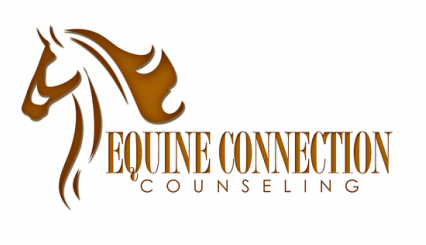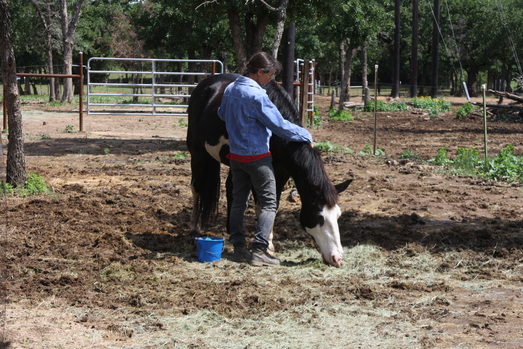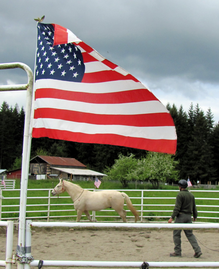When humans have a social interaction, there are measurable changes that occur to our brains and nervous systems. These changes in our brains are part of a growing field of scientific research known as interpersonal neurobiology (IN). IN has contributed a lot to the type of equine assisted counseling practiced by the ECC counselors. It is thought that the same neurobiological effects that people experience when interacting with other humans also happen when interacting with other social animals like horses.
All animals, including humans, have mirror neurons. Mirror neurons are a type of brain cell that helps us recognize and empathize with emotion in other living things. There are millions of them in our brains. They enable us to feel sad when we see someone cry, embarrassed when we see someone humiliated, or happy when we see someone smile and laugh. In interpersonal neurobiology this is known as resonance. Researchers and clinicians suggest that the way our brains and bodies respond to another person’s emotional state facilitates the awareness needed for our brains to activate new neural pathways—which in turn enables us to learn new ways to self-regulate and manage our emotional experiences. So when a counselor interacts with his or her client in a way that is empathetic, open, and accepting, they are essentially giving the client’s brain an opportunity to learn self-awareness and self-acceptance.
Some people have theorized that horses have millions or billions more mirror neurons than people do, making them experts at understanding nonverbal communication. All those mirror neurons enable horses to empathize even more than people do. In counseling, the horse can pick up on emotions that human clients and human counselors might not be aware of yet. It also means that humans and horses can engage in social relationships on a neurological level; although facial expressions and language might be different, the horse’s and human’s brains can respond to each other and build a relationship. When we consider that IN is based on the idea that a counselor’s empathy and non-judgment can help a person to heal, imagine how much someone can gain from interacting with an animal that has an even greater ability to be empathetic and accepting.
A lot of the field of IN is based on what little we know about the human brain and a lot of theory by experts. However, more research is being conducted all the time and there is an ever-growing body of information about things like mirror neurons, resonance, and the social brain. If you would like to learn in more detail about these topics, we suggest looking into the resources below.
- Dr. Dan Siegel: http://www.drdansiegel.com/
- Mindsight: The New Science of Personal Transformation (Dan Siegel)
- A General Theory of Love (Thomas Lewis, Fari Amini, & Richard Lannon)
- Born For Love: Why Empathy is Essential -- And Endangered (Bruce Perry & Maia Szalavitz)
- Made for Each Other: The Biology of the Human-Animal Bond (Meg Daley Olmert)
- Affective Neuroscience: The Foundations of Human and Animal Emotions (Jaak Panksepp)
- Zen Mind, Zen Horse: The Science and Spirituality of Working with Horses (Allan Hamilton)



 RSS Feed
RSS Feed
